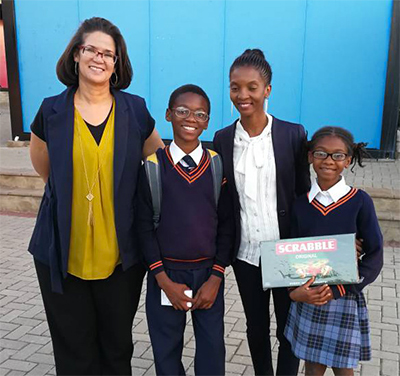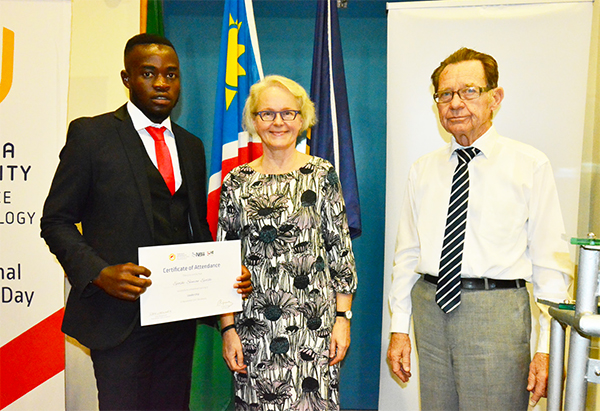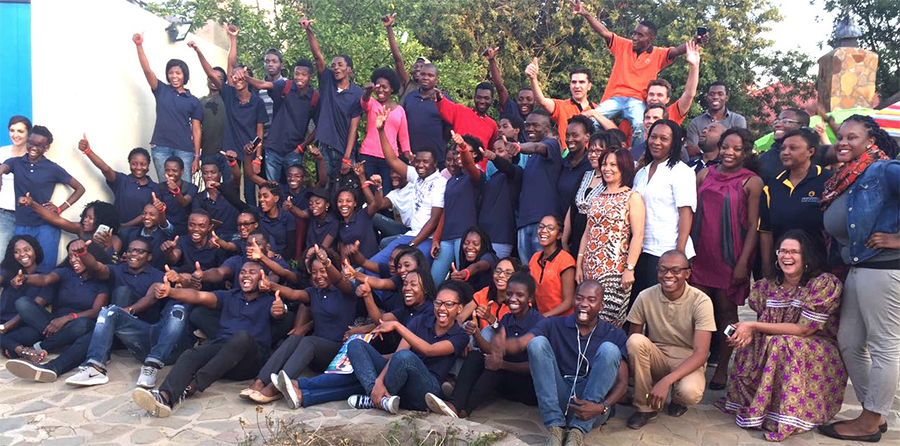
Grade 7 learner becomes game developer
13-year old, Berhane Wheeler, was happy to be part of the Game Design Challenge as he has a keen interest in designing and coding. He has previously designed a video game called ‘The Heroes of Namibia’ which focuses on helping children learn about Namibian historical figures. He started developing digital games after his mother introduced him to Scratch, a programming language, after which lecturers from the Faculty introduced him to virtual and augmented reality games.
He thanked the Faculty of Computing and Informatics for the help he received during his journey and encouraged other children to expand their horizons. Dr Peters, the Dean of the Faculty said: “We constantly receive requests from school learners all over the country to teach them programming. I was really happy to see how proficient this learner is and he can now even teach other learners. I really commend the lecturers for being involved in community service projects.”
During the Gameathon, four 3D digital games were developed which will further be created and tested by Master’s degree students.
The two-day event aimed at bringing students and school learners together, to demonstrate their design and development skills while trying to tackle youth problems like career guidance and online victimisation through gamification.
The idea is that, as opposed to classical entertainment where you are an observer in the games, one can participate in the story as it unfolds, learning the basics of designing and enjoying an immersive experience.
RELATED POSTS

570 unemployed youths graduated from the Reconstruction Living Labs Namibia (RLabs), which is a social innovation programme under the Namibia Business Innovation Institute (NBII), at NUST.

The Reconstructed Living Labs popularly known as RLabs Namibia under the auspices of the Namibia Business Innovation Institute at the Namibia University of Science and Technology held its 7th graduation ceremony on the 22nd of November 2018 at the Innovation Village in Windhoek.







None